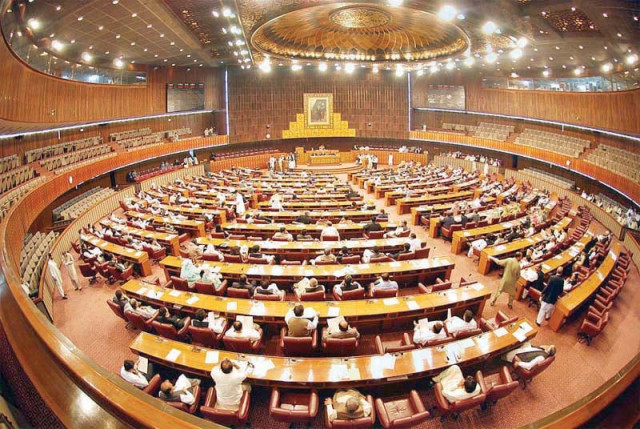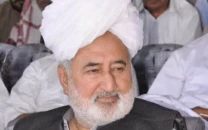Current assembly’s performance ‘improving’
Pildat report says legislative activity witnessed sharp increase, 100 bills were passed during first three years

Pakistan Institute of Legislative Development and Transparency (Pildat) – a think tank that works to promote democracy and governance in the country – has released an assessment report of the third year of the 15th National Assembly based on the key performance indicators.
The report also draws a three-year performance comparative analysis between the 15th National Assembly and the corresponding period of the 14th National Assembly.
According to the report, the legislative activity witnessed a sharp increase in the third year of the current National Assembly as it passed 60 laws. This was a 100% increase over 30 bills passed in the second year while the first year had seen the passage of only 10 bills.
The 15th National Assembly passed 100 bills during the first three years, compared to 69 total bills which were passed by the 14th National Assembly in its first three years, which is 45% higher.
Another positive development was the decrease in the number of ordinances laid by the government in the assembly during the third year. Overall, 20 ordinances were laid in the assembly in the third year, compared to 31 ordinances in its second year, which is a decrease of about 35%.
Meanwhile, 29 ordinances were laid by the previous government in the first three years compared to 58 ordinances laid by the current government in three years, showing a 100% increase.
During its third year, the 15th National Assembly met only for 79 working days, which showed a decline of 11% from 89 working days in the second year. On average, the current assembly met for 88 working days per year in its first three years.
In comparison, the previous assembly had met for 99 working days on an average per year during its first three years. In that sense, the performance of the current assembly declined by 11% compared to the previous assembly.
In its third year, the 15th National Assembly met for 217.10 hours, which is a decline by 36% from the second year when it was convened for 340.34 hours.
The 15th National Assembly had worked for 284.87 hours in the three years on an average whereas the average of the 14th National Assembly was 312.08 for the same duration.
The third year of the current assembly witnessed an average of 65% attendance of MNAs which is slightly above the 64% during the second year.
The combined average of legislators’ attendance in the first three years of the current assembly stood at 67%, which is an improvement of 12% when compared to the previous assembly.
Regarding the attendance of the premier, Prime Minister Imran Khan was present in 9% of the assembly sittings in the third year, which is consistent with his attendance during the second year.
On average, PM Imran attended 12% sittings in the first three years of the assembly.
Former premier Nawaz Sharif attended 16% of the sittings in the first three years of the previous government.
Opposition Leader in the National Assembly Shehbaz Sharif had attended 13% of sittings of the lower house in its third year, which is an improvement from only 4% of his attendance during the second year of the current assembly.
However, when compared with the average attendance of the previous opposition leader in the 14th National Assembly, Syed Khursheed Shah, who attended, on average 75% of the sittings of the 14th Assembly in its first three years, the average attendance of Shehbaz Sharif is only 24% in the three years.
In the third year of the 15th National Assembly, only 16 days had been spent in the scrutiny and passage of the Finance Bill 2020-2021, a day less than what was spent during the second year.
This has been in keeping with the historic average of budget sessions in the National Assembly of about 15 days.



















COMMENTS
Comments are moderated and generally will be posted if they are on-topic and not abusive.
For more information, please see our Comments FAQ